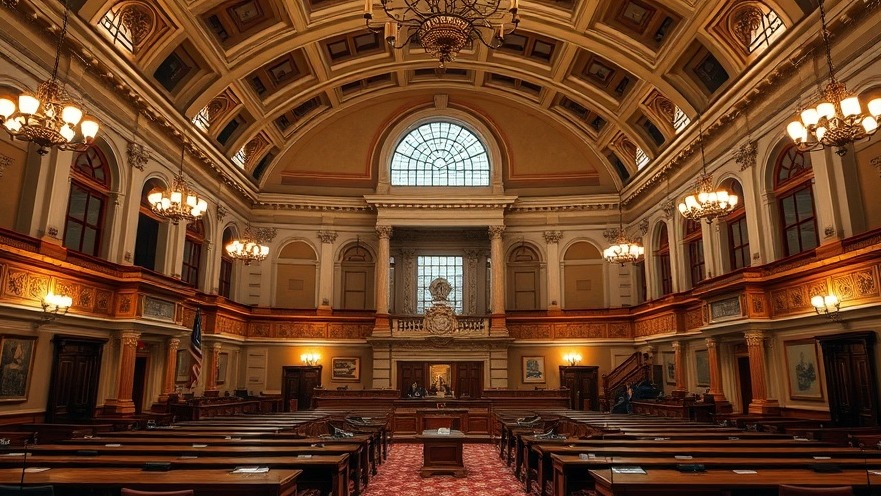
Texas Legislature Marks Milestone with New Political Landscape
The Texas Legislature has officially concluded its second special session with the passage of significant legislation that has reshaped the political landscape for the state. Amid a backdrop of tense bipartisan warfare, lawmakers have succeeded in implementing a new congressional map that optimizes Republican representation in anticipation of the 2025 elections. This redistricting, described by many as gerrymandering, has triggered legal challenges from the Democratic Party, highlighting the ongoing battle over voting rights and electoral fairness.
Beyond Redistricting: A Suite of Conservative Wins
In addition to the redistricting drama, the special session saw the enactment of various socially conservative policies that had previously stalled. Issues that surfaced included stricter regulations on abortion pills and the controversial limitation of restroom access for transgender individuals in public facilities. These measures signal a growing trend among Texas Republicans to push their conservative agenda strongly, capitalizing on their legislative majority to shape public policy profoundly.
The Fallout of Partisan Divisions
The fallout from this special session has been palpable, especially with the increased divide between Texas lawmakers. During a heated House debate on new penalties aimed at deterring Democratic quorum breaks, tensions flared. One Democratic representative criticized the legislative environment, suggesting that the punitive measures enacted only serve to disenfranchise voters. This divide extends beyond personal animosities, posing significant implications for how Texans, particularly marginalized communities, engage in the democratic process.
Public Response and Political Implications
The public response to the newly passed legislation has been voluminous, especially regarding the redistricting map. While Republican lawmakers tout the success of increasing their seats in Congress, Democrats are prepared to take action in the courts to protect the voting rights of Texans of color. The political ramifications are long-reaching, potentially shifting the power dynamics in future elections and creating a contentious atmosphere around the Texas political landscape.
A Balance of Policy and Public Sentiment
Despite significant Republican achievements during this special session, not all aspirations were realized. Notably, debates around property tax reform and regulations regarding the burgeoning hemp market failed to converge into actionable legislation, leaving some lawmakers frustrated. This disconnect between policy objectives and public sentiment reflects the complexity of governance in Texas today; priorities can easily shift alongside political tides.
The Future of Texas Politics: Trends to Watch
As Texas approaches the critical 2025 elections, the outcomes of this special session will undoubtedly play a central role. The newly drawn congressional maps, along with the array of conservative policies now in place, set the stage for contentious political races. Observers are keenly watching how these developments will influence voter turnout, particularly among minority communities who feel their voices are drowned out amid aggressive partisan tactics.
Final Thoughts: Engaging with the Political Landscape
In conclusion, as the dust settles on the Texas Legislature’s recent actions, it’s clear that the political environment is evolving rapidly. The interplay of newly enacted legislation and redistricting strategies presents both opportunities and challenges for Texans. Engaging with local and state politics has never been more critical, especially as future policy decisions will continue to shape the rights and lives of millions across the state. Keep an eye on upcoming developments, as the implications of these decisions will unfold in real-time.
 Add Element
Add Element  Add Row
Add Row 



Write A Comment